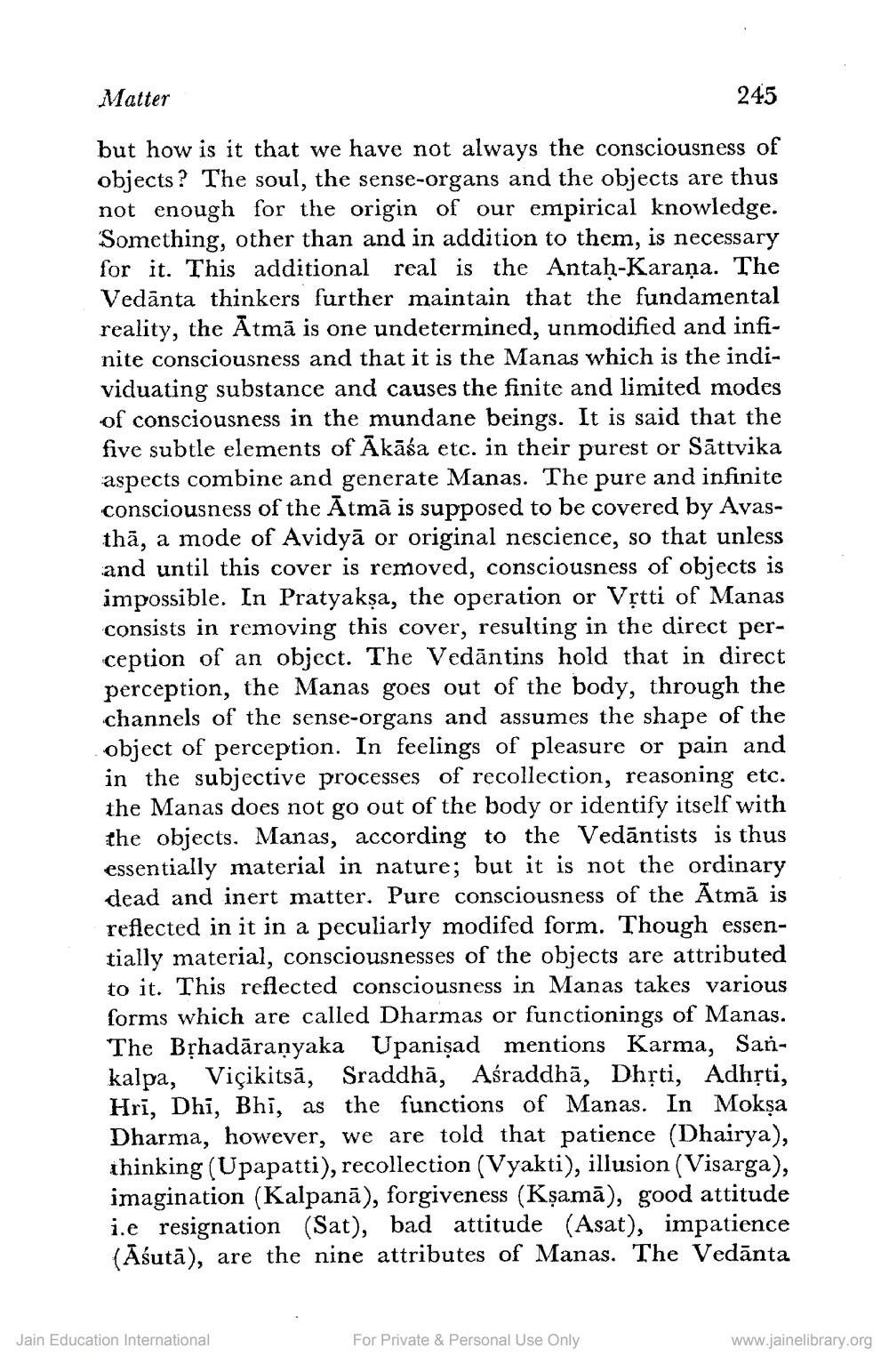________________
Matter
245
but how is it that we have not always the consciousness of objects? The soul, the sense-organs and the objects are thus not enough for the origin of our empirical knowledge. Something, other than and in addition to them, is necessary for it. This additional real is the Antah-Karaṇa. The Vedanta thinkers further maintain that the fundamental reality, the Atma is one undetermined, unmodified and infinite consciousness and that it is the Manas which is the individuating substance and causes the finite and limited modes of consciousness in the mundane beings. It is said that the five subtle elements of Ākāśa etc. in their purest or Sattvika aspects combine and generate Manas. The pure and infinite consciousness of the Atma is supposed to be covered by Avastha, a mode of Avidya or original nescience, so that unless and until this cover is removed, consciousness of objects is impossible. In Pratyakṣa, the operation or Vṛtti of Manas consists in removing this cover, resulting in the direct perception of an object. The Vedantins hold that in direct perception, the Manas goes out of the body, through the channels of the sense-organs and assumes the shape of the object of perception. In feelings of pleasure or pain and in the subjective processes of recollection, reasoning etc. the Manas does not go out of the body or identify itself with the objects. Manas, according to the Vedāntists is thus essentially material in nature; but it is not the ordinary dead and inert matter. Pure consciousness of the Atma is reflected in it in a peculiarly modifed form. Though essentially material, consciousnesses of the objects are attributed to it. This reflected consciousness in Manas takes various forms which are called Dharmas or functionings of Manas. The Bṛhadaranyaka Upanisad mentions Karma, Sankalpa, Viçikitsa, Sraddha, Aśraddha, Dhṛti, Adhṛti, Hri, Dhi, Bhi, as the functions of Manas. In Mokṣa Dharma, however, we are told that patience (Dhairya), thinking (Upapatti), recollection (Vyakti), illusion (Visarga), imagination (Kalpana), forgiveness (Kṣamā), good attitude i.e resignation (Sat), bad attitude (Asat), impatience (Asutā), are the nine attributes of Manas. The Vedanta
Jain Education International
For Private & Personal Use Only
www.jainelibrary.org




